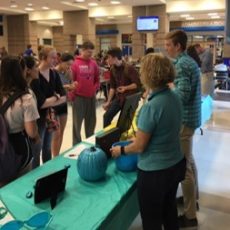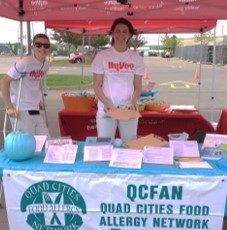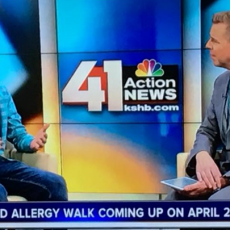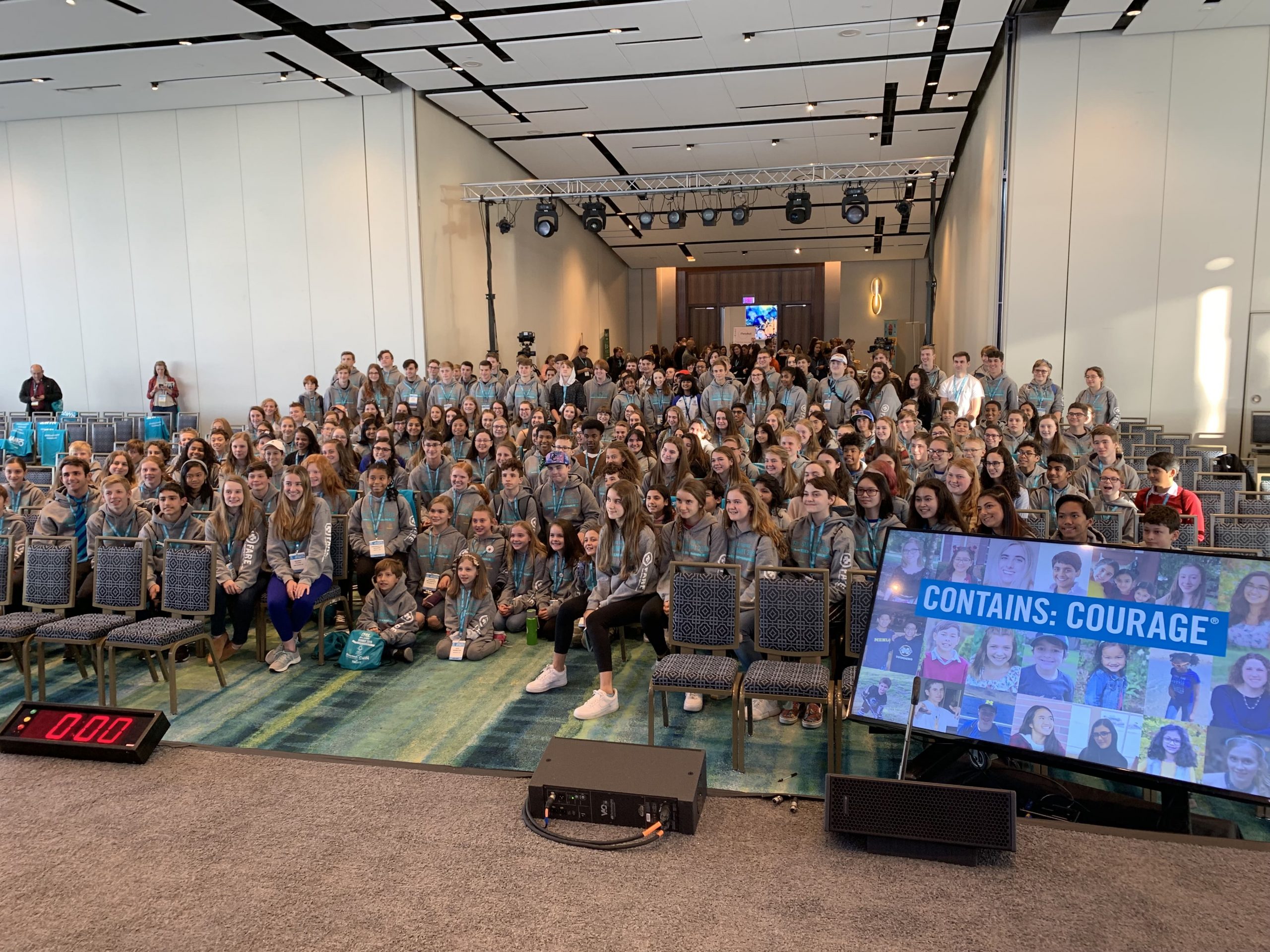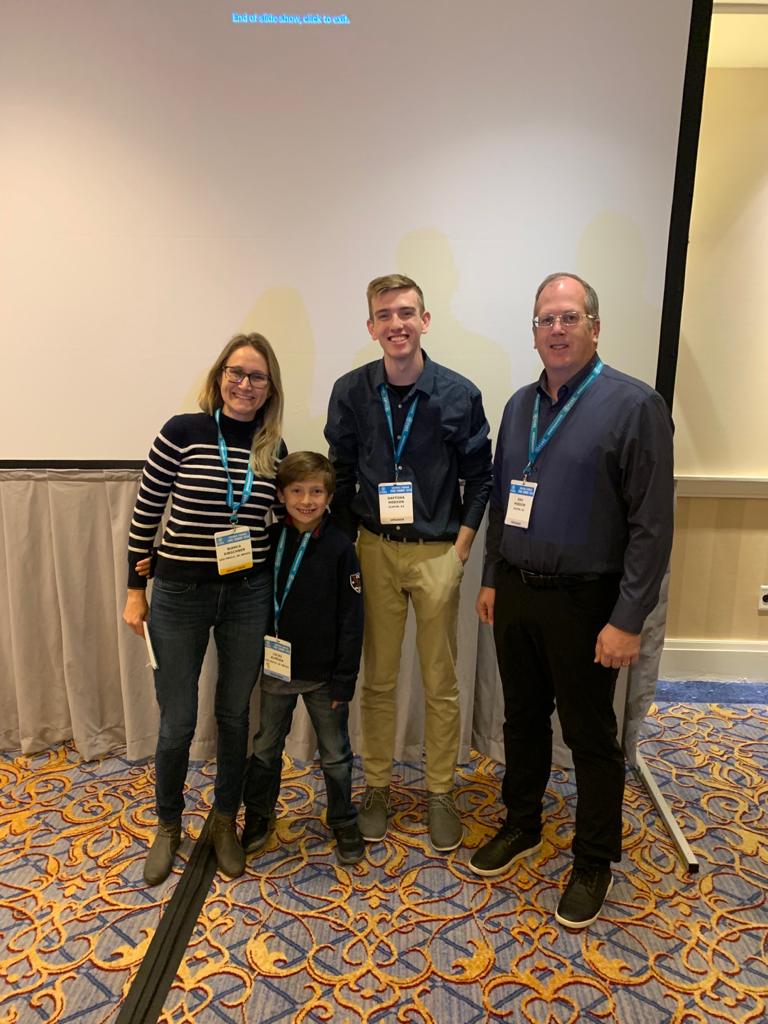
Interviewed by Bianca Kirschner
Me and Lucas met Daytona and his dad, Eric Hodson in Washington, DC last October during Contains: Courage FARE Summit 2019. Their session was called Do’s And Dont’s For Dads and Dudes. After their talk we introduced ourselves and recently we invited Daytona to collaborate with us sharing some of his experiences as a young adult living with food allergies.
Bianca: Please, tell us a little bit about you, your hobbies, hometown, major at school and your allergies
Daytona: Hello, I’m Daytona Hodson and I am 17 years old. I live in Olathe, Kansas in the United States and have been across the country advocating for food allergies. I’ve been allergic to peanuts for all of my life, and I grew out of my tree nut allergy when I was in 4th grade. I’ve participated in several sports throughout high school in middle school and I’m on the speech and debate team for our school. In my free time I enjoy spending time outside and being with friends.
Bianca: One of the goals with our project @ConexaoAlimentarOficial is to show to Lucas, our 8-year old son that there are teenagers and adults also living with food allergies. Having said that, what would you like to share with us about your responsibilities being a teenager with food allergies and living without having an adult next to you all the time? Do you remember when you started to experience making your own food choices independently, not having your parents around anymore? How did you feel?
Daytona: When I was growing up my mother was always there to keep me safe, but soon I began learning from her. For class parties, I always reminded adults and teachers about my allergy and began reminding waiters at restaurants about my allergy when ordering food. My parents started introducing small things that I could be responsible for in regards to my allergies so that when I had to do it all on my own, it would not be that difficult. I often was responsible for my epi pens and carried them around in a carrier around my waist. In case of an emergency, I always wore my medical alert bracelet. If I ever was having a reaction, a paramedic could easily identify the problem right on my wrist. While transitioning into middle school, I often was questioned about my “fanny pack” carrying my epi pens or my bracelet. At first, I was shy about my allergy. I just wanted to be a normal kid. However, instead of possibly putting myself in dangerous situations by not having my epi pens, I decided to make it normal.
I started educating my peers about the severity of my allergy and looked to create a safe environment for all. While it can be nervous to speak out about something like your allergy to your peers, it can pay off greatly in the long term. Now as I am transitioning from High School to College, I’ve developed more responsibilities. Now that I have my own car, I have the freedom to socialize with friends almost anytime that I would like. However, socializing often means food. The first thing I try to do is develop good communication with my group so I can suggest restaurants or options that are safe for me. I tend to be the person to create reservations so that I can ask the restaurant or event about my allergies. Although, I have found that I can’t always find a safe alternative. That is why I also encourage you to try and find events that don’t require any food at all. This could include riding bikes, playing sports, and other fun activities. Socializing with food allergies can often seem like a difficult task, but as long as you coordinate ahead of time, you won’t be put into a dangerous situation.
Bianca: We are getting closer to May, which is Food Allergy Awareness Month. Can you share with us some of your ideas about bringing awareness to school?
Daytona: Food Allergy Awareness month is always very exciting for me. In the past, I have worked with my community and school to spread awareness. In my city, we asked our mayor to create food allergy awareness week in our city. This received attention from several local newspapers and news stations and furthered the education about food allergies during this time. At my school and others in the area, I have hosted a food allergy awareness table to educate staff and students about food allergy preparedness. We showed people how to inject an epi pen, what to do in case of an emergency, how to babysit a child with food allergies, and how to include others with food allergies. Considering that I spend roughly 8 hours of my day in that location, It was another great step in keeping me safe. During this time, I have worked with local support groups and food allergy families to create awareness events in the community. For these events, we simply had resources available at a library or local meeting place. Then we would pass them out to visitors that were interested. I know that dads and kids can find it hard to become involved in food allergy advocacy. Often it is the mom that helps when a problem occurs. However it is crucial that dads and kids become involved. I’ve had adults tell me that while they have heard from parents about food allergies before, having a first hand perspective talk about their allergy was extremely impactful. My dad was always great at communicating with coaches about managing my food allergies. It may not seem like much, but having a different perspective brings up a concern about food allergies can often make the difference for someone.
Gallery:



